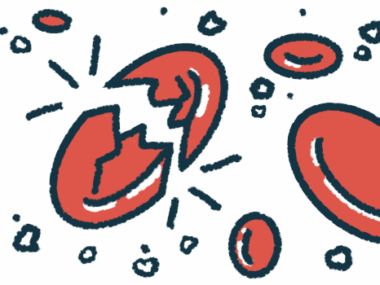The benefits of community engagement across our rare diseases
Ableism, healthcare, and advocacy are among our many shared concerns
Written by |

Last Friday was notable for two reasons: my most recent column was published, and I canceled a planned meeting with two friends at the last minute because of pain. That had me feeling quite deflated and annoyed because I’d made plans I couldn’t realize because of my sickle cell disease.
I’ve written about the art of distraction when I’m suffering with a crisis. So on Friday, in an attempt to shift my focus elsewhere and distract myself, I scrolled through social media until there was nothing left to view. I then decided to search my name on Instagram. I’m not sure where I got the idea because it’s not something I’ve done before.
I was shocked by the results.
Quotations from my columns were on the pages of several global sickle cell agencies. I found it comforting to see my words used across various platforms by organizations I hadn’t connected with and didn’t know, other than our mutual aim to raise sickle cell awareness.
It’s funny because I don’t think I’d grasped that I have such a global reach, even though I live in the United Kingdom, write on this rare disease website based in the United States, and get comments and queries from those in the sickle cell communities across Africa, America, and Europe. That just hadn’t hit me before.
But what I saw next was an even bigger surprise.
Other rare disease communities were promoting the advice and perceptions I’d offered about sickle cell. To say that encouraged me would be an understatement. I was elated.
Recognizing our commonalities
It highlighted to me that though we in the larger rare disease community may suffer from different illnesses, we’re all combating similar systems and prejudices. We’re all fighting our individual illnesses to live, for instance, and live as best as we know how.
Many of the problems we face are comparable, including our limited understanding of our conditions; our need to communicate our pain and find effective relief that doesn’t impinge on our general health; and our struggle to get the correct treatment and resources in a timely and affordable manner.
Many of us have experienced the injustice of discrimination in schools or workplaces, thus hindering our ability to achieve, progress, make a living, and maintain our independence. We all live in a society that isn’t built to include disabled people, making us find ways to force society to see us as we adapt and participate in the wider community. And we often combat government agencies and policies that bring about hostility toward disabled people.
We encounter other shared struggles, such as trying to be optimistic even though statistics project doom and gloom on life expectancies; trying to do all we can to look after our mental health and bounce back from extremely traumatic medical experiences; and becoming experts on our diseases and our bodies to ensure we can be strategic in our decision making, thus giving us the best possible quality of life.
So many of these and other struggles, and still other experiences, are shared among us. Though not all of our experiences are homogenous, we can nonetheless learn from one another and thus make significant positive contributions across disease communities and patient groups. Expanding our support networks and disease communities to collaborate with others gives us the opportunity to maximize knowledge-sharing. This effort creates benefits at levels both individual and community.
Just under 6% of the global population has a rare disease at some point, according to estimates. And the World Health Organization reports that roughly 1 in every 6 people experiences significant disability. That’s a large chunk of society, yet in so many ways we’re excluded from that society because of ableism, both deliberate and unconscious.
As most of us know, there’s power in numbers when it comes to mobilizing to advocate for legislative protections, policy changes, adequate resource provision from government agencies, and moving toward an inclusive society more generally. I suspect we could effect change more rapidly if we came together to build both formal and informal cross-disease communities and networks.
Last Friday night’s social media scrolling may have done nothing to dampen my physical pain, but it accomplished something great. It brought to the surface a poignant thought, in light of Rare Disease Day, that we could reap major benefits as rare disease patients through cross-disease community cooperation.
Meanwhile, I’ll be sure to search my name more frequently. Ha!
Note: Sickle Cell Disease News is strictly a news and information website about the disease. It does not provide medical advice, diagnosis, or treatment. This content is not intended to be a substitute for professional medical advice, diagnosis, or treatment. Always seek the advice of your physician or other qualified health provider with any questions you may have regarding a medical condition. Never disregard professional medical advice or delay in seeking it because of something you have read on this website. The opinions expressed in this column are not those of Sickle Cell Disease News or its parent company, Bionews, and are intended to spark discussion about issues pertaining to sickle cell disease.







Leave a comment
Fill in the required fields to post. Your email address will not be published.